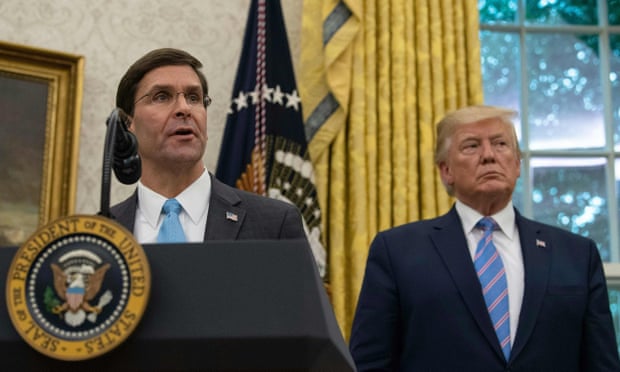
The Guardian
In 2004, a features editor asserted that "it is no secret we are a centre-left newspaper."
The abrupt dismissal of the US defence secretary, Mark Esper, and reported plans for multiple layers of new sanctions on Iran have made clear that Donald Trump’s last 10 weeks in office could still prove a very bumpy ride for the rest of the world.
Trump is refusing to concede his loss to Joe Biden and, while he launches a quiver of baseless legal challenges to the results, he is also seeking to demonstrate he is still in charge of foreign and defence policy – fueling fears about the impact a vengeful president might have on the US role on the world stage over the coming 10 weeks of transition.
It was unclear on Monday whether Esper’s firing by tweet was just an act of score-settling with an outgoing defence secretary who openly disagreed with the president, or whether it was intended to clear the way for actions in the domestic or foreign sphere that Esper had been blocking.
On the same day as Esper’s departure, the Axios news website cited Israeli sources as saying the US, Israel and their Gulf allies were discussing a plan to add more bricks to the sanctions wall they have built around Iran, potentially with a new raft of punitive measures a week running up to Biden’s inauguration on 20 January.
The Trump administration strategy in recent months has been to build up pressure on Iran with the aim of provoking a response from Tehran which would make it harder for the incoming administration to salvage the 2015 nuclear deal, the Joint Comprehensive Programme of Action (JCPOA).
So far, Tehran has remained broadly within the JCPOA, while shrugging off some of the constraints it imposed on its nuclear activity in a calibrated response to US sanctions. But the Trump administration has clearly not given up trying to goad the Iranians into more irreversible actions.











